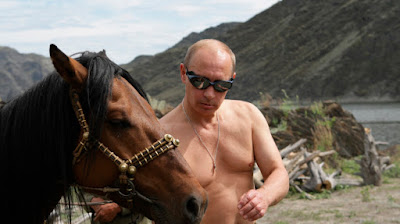Continued from previous post . . . There are three serious threats today to democratic institutions and the social freedoms we’ve built and continue to build in the West. Two of them have a serious level of political and social power.
One would be the nationalist cultural conservatives – whether they define themselves in terms of religion (American Biblical literalist Evangelicals), race (the alt-right), or both (Dugin-style Russian nationalism).
The other would be oligarchs – the political movement for small government, lower taxes, an end to all welfare state institutions, and the removal of almost all labour and environmental protection laws.
But democracy has been criticized and attacked pretty well ever since democracy in any form has existed. Working in the Western tradition* – and reading Jacques Rancière in particular – most folks learn Plato’s arguments against democracy pretty early in a humanities education.
* I only know little bits of the democratic idea in the Asian traditions of politics and philosophy. But Mozi’s philosophy of universal love seems like it’s been a roiling undercurrent of Chinese political thought from the Warring States period onward.
Basically, it’s that democracy – rule of everyone by everyone – is the rule of the mob, the ignorant masses who destroy themselves with chaos and tyranny. Maybe their community collapses after takeover by a charismatic despot who seduces the people into supporting him. Maybe the community fragments into internal conflicts.
This idea is at the heart of all ill will toward democracy and universal freedom – that only the wise deserve to be free. Because only the truly wise will know how best to use their freedom.
In the institutions of democracy, that means restricting the right to vote. Not by some explicitly crude metric like race or religion. But by a person’s level of knowledge about their democratic institutions, the policies of the candidates, and the history of the country.
This was an idea that the conservative scholar David Harsanyi published this May. It amounts to a literacy test, which is one argument against its use. You’re damn right it would have detrimental effects against marginalized communities, disenfranchising huge swaths of people who need more than anyone to be heard by the powerful in society.
But the idea is seductive, because as an abstract principle, it makes perfect sense. If you don’t know anything about the real effects of the power you wield in voting, you shouldn’t use that power until you have the knowledge to use it wisely.
So there’s a more profound argument to make here in favour of the democratic drive for everyone to have the maximum possible say over their own futures. At first glance, what I’m about to say may sound completely absurd – that knowledge of democratic institutions doesn’t matter for your civic engagement in a democracy.
Think about everything I’ve written about as I’ve hammered out my conception of immanent freedom in society. Democratic institutions – like elections, government transparency, and voting – are actually the least important elements of a democratic society.
They’re necessary, but far from sufficient. Institutions alone can produce an entrenched oligarchy – rotating in and out of legislative power through elections, all parliamentary parties corrupt, campaigns so expensive and financed by absurdly rich individuals and huge corporate subsidy.
Why does that sound so familiar to me?
You can be a democracy and be an oligarchy. Knowledge of institutions doesn’t make a difference if you still let those institutions slide into a transparent oligarchy.
What makes a democracy a society of freedom is the activism of people. People demanding a better deal, not only from their government, but from each other.
So in a way, Harsanyi and Plato are right that you need knowledge and wisdom to build a truly free society. But it’s a different kind of knowledge than the institutional and historical. It’s the knowledge of the networks, relationships, lives, and imbalances of justice all over your society.
One kind of knowledge that makes you more free? Knowing people from lots of different ethnic groups, cultural communities, social classes, genders, and sexualities in your city and your country. It’s the basic knowledge of the literal fabric of your society.
You learn what kinds of people exist in your society – what makes you different, and the struggles for common dignity that bring you together. And that's the fundamental fabric that holds real freedom together.


No comments:
Post a Comment